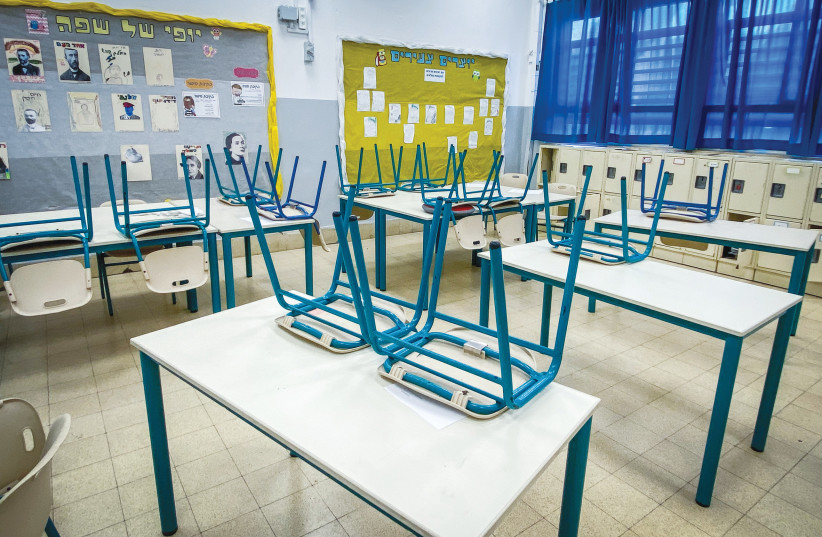Israeli children are about to head back to school, but the country's education system is still plagued by a number of major gaps nationwide, the State Comptroller's Office said on Tuesday.
Over the past year, the state comptroller has released several reports discussing the numerous gaps and issues in the education system.
In light of this, State Comptroller Matanyahu Englman sent out a list of some particular highlights of these many reports to illustrate these many issues ahead of the start of the academic year.
Here are some of the highlights.
What are the major gaps in Israel's school system?
A major overarching theme in the many reports is the advantage enjoyed by the primarily Jewish center of the country compared to the geographic and social periphery.

As noted in several reports, the resources allocated by the Education Ministry differ from different demographic sectors in society.
This, in turn, limits the potential growth students can experience.
This gap is most readily seen in funding, with gaps in several thousands of shekels.
Another gap can be seen in how much funding is given by local authorities to help improve student academic achievements.
These divisions are especially present on socio-economic levels. For example, as cited in a July 2023 State Comptroller Report, Ramat Gan invested NIS 61 million to fund extracurricular education programs from 2005-2012.
In the town of Kaukab, however, the local authority didn't budget any funds for extracurriculars, relying entirely on the Education Ministry to fund them.
Further, as noted in a May 2023 report, poorer municipalities have far fewer sports facilities for students, with Arab municipalities having 38% fewer sports facilities than Jewish ones and ultra-Orthodox (haredi) municipalities having 90% fewer.
Another recurring issue present is the classroom shortage. This particular problem is especially prevalent in haredi and Arab communities, but overall, there is a shortage of over 10,000 classrooms nationwide, according to a 2022 report.
"Equality of opportunity begins with education," Englman said in a statement. "Many of our reports have dealt with the disparities in the allocation of educational resources between the center and the periphery. There must not be some children who are worth more and other children who are worth less."
